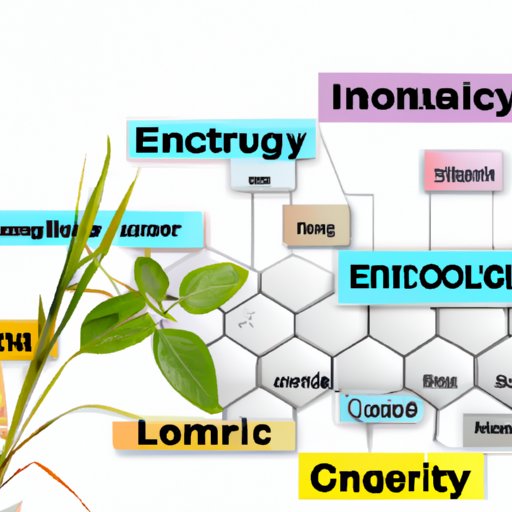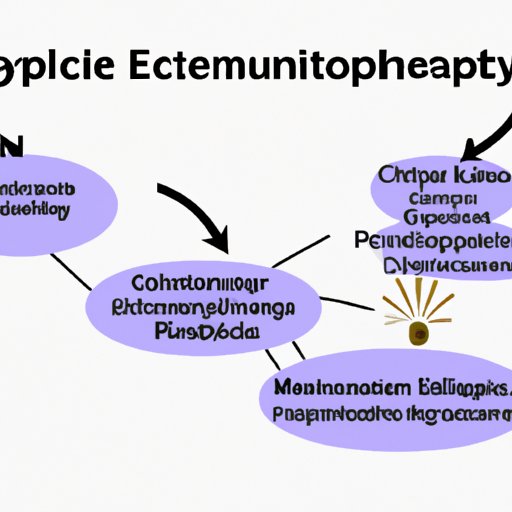Introduction
Ecology is the scientific study of interactions between organisms and their physical environment. It is a branch of biology that examines how living things interact with each other and with the non-living elements of their environment. Ecology is a broad field that encompasses many different sub-disciplines, such as population ecology, community ecology, and ecosystem ecology. As a life science, ecology is closely related to other disciplines such as biology, chemistry, and physics.
Overview of Life Sciences
Life sciences are a group of sciences that focus on the study of living organisms. This includes fields such as biology, medicine, biochemistry, zoology, botany, genetics, and ecology. These disciplines focus on understanding the structure, function, growth, origin, evolution, and distribution of living organisms. Life sciences are important for understanding the world around us and for developing solutions to global problems.

Importance of Ecology as a Life Science
The importance of ecology as a life science cannot be overstated. The health of our planet and the welfare of all living beings depend on it. By studying the interactions between organisms and their environment, ecologists can gain insight into how changes in one element can affect the entire system. This knowledge is essential for developing strategies to protect and conserve natural resources and ensure the sustainability of our planet.
Branches of Ecology
Ecology is divided into several branches, each focusing on a particular aspect of the environment. Aquatic ecology deals with the interactions between organisms and the aquatic environment. Terrestrial ecology focuses on the interactions between organisms and the terrestrial environment. Population ecology examines the dynamics of populations, while community ecology studies the interactions between different species in an ecosystem. Ecosystem ecology looks at the energy flow and nutrient cycling within an ecosystem, and landscape ecology studies the interactions between landforms, habitats, and organisms.
Impact of Human Activities on the Environment
Human activities have had a significant impact on the environment. Climate change, pollution, and deforestation are just some of the major issues facing the planet today. These activities have caused irreparable damage to ecosystems and have led to the extinction of many species. Ecologists are working to understand the long-term effects of these activities and develop strategies to mitigate them.
Current Challenges in Ecological Research
Despite its importance, ecology is often underfunded and undervalued. This has led to limited data collection and analysis, making it difficult to make accurate predictions about the future of our planet. In addition, the rapid rate of environmental change has made it difficult to monitor and assess the impacts of human activities on biodiversity. As a result, there is an urgent need to increase funding and resources for ecological research.

Relationship Between Ecology and Other Life Sciences
Ecology is closely connected to other life sciences such as biology, chemistry, and physics. For example, the study of plant physiology requires knowledge of both biology and ecology, as does the study of animal behavior and population dynamics. Chemistry is important for understanding chemical processes in the environment, while physics is necessary for understanding the physical properties of the environment. All of these sciences are interconnected and essential for understanding the complex interactions between living organisms and their environment.
Ways to Study Ecology
There are several ways to study ecology. Fieldwork is the most common method, allowing researchers to observe and collect data on the environment and its inhabitants. Experiments are another way to study ecology, allowing scientists to test hypotheses and draw conclusions. Computer modeling is also used to simulate and predict ecological systems. These methods allow ecologists to gain insights into the complex relationships between organisms and their environment.

Potential Applications of Ecology to Other Areas of Life Science
The knowledge gained through ecological research can be applied to other areas of life science. Environmental management, conservation, and sustainable development can all benefit from the insights provided by ecology. For example, the principles of population and community ecology can be used to better manage wildlife populations and conserve endangered species. In addition, understanding the dynamics of ecosystems can help inform decisions about land use and agricultural practices.
Conclusion
Ecology plays an essential role in our lives and in our environment. By understanding the interactions between living organisms and their environment, ecologists can gain insights into how human activities are affecting the planet. These insights can then be used to develop strategies for protecting and conserving natural resources and ensuring the sustainability of our planet. Ecology is a vital life science that deserves more attention and resources.
(Note: Is this article not meeting your expectations? Do you have knowledge or insights to share? Unlock new opportunities and expand your reach by joining our authors team. Click Registration to join us and share your expertise with our readers.)
